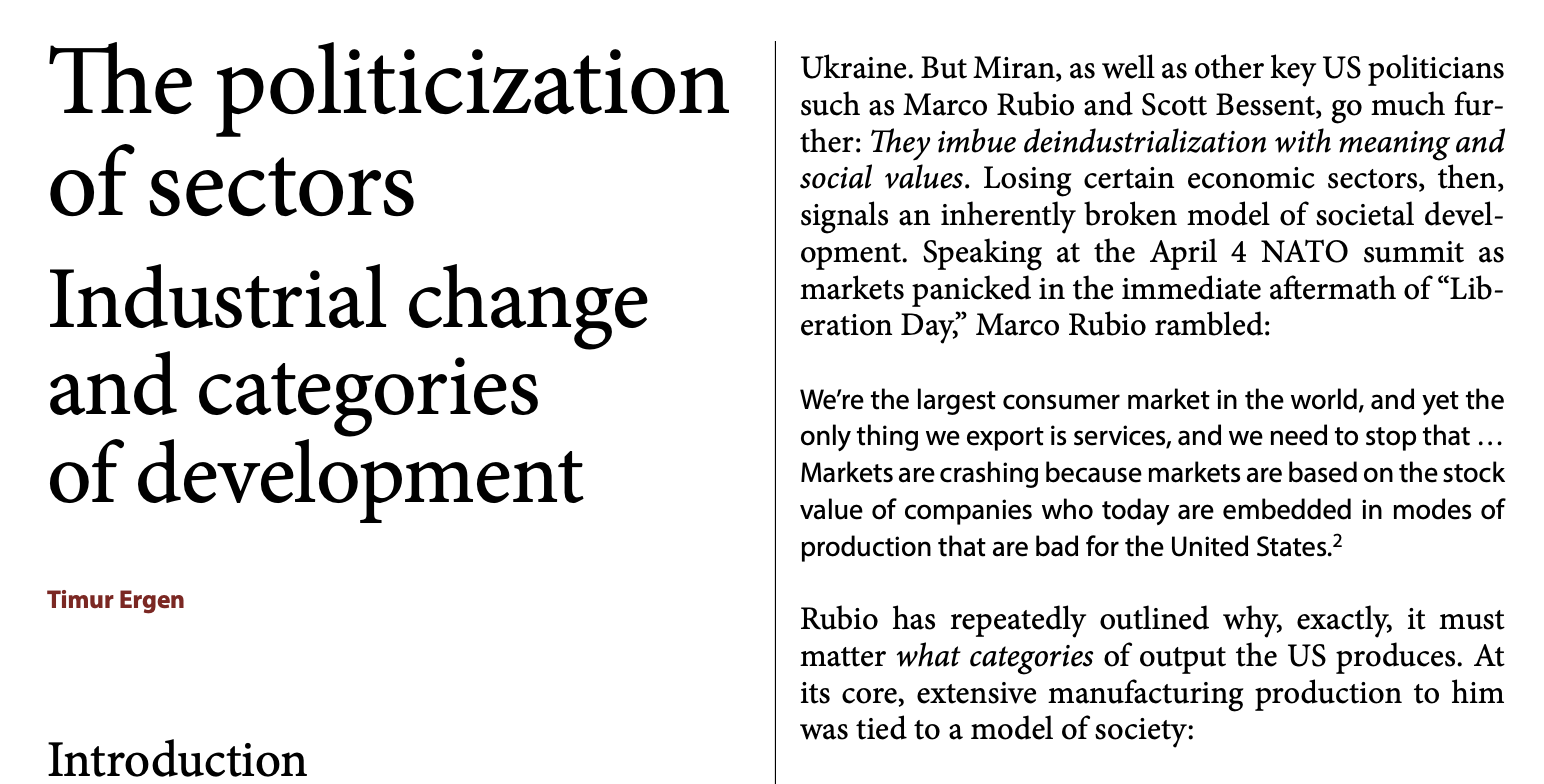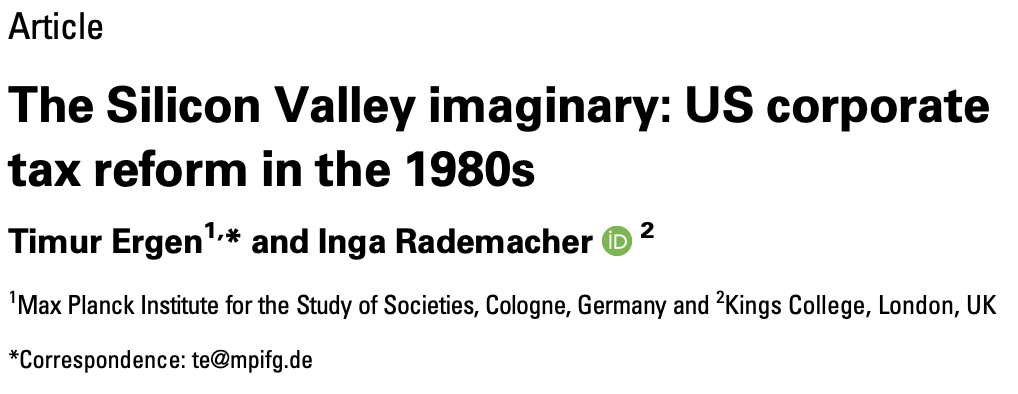
Short paper on the sociology of deindustrialization
On April 7, 2025, just five days after “Liberation Day” – the announcement of across-the-board US tariff hikes sending shockwaves through financial markets – Steve Miran made some much-cited remarks at the Hudson Institute. The second Trump administration’s chair of the Council of Economic Advisers demanded large-scale reparations from the United States’ trading partners – not for war, but for relying on US hegemony, and in particular on the international system of military hegemony and dollar reserve currency provision.


